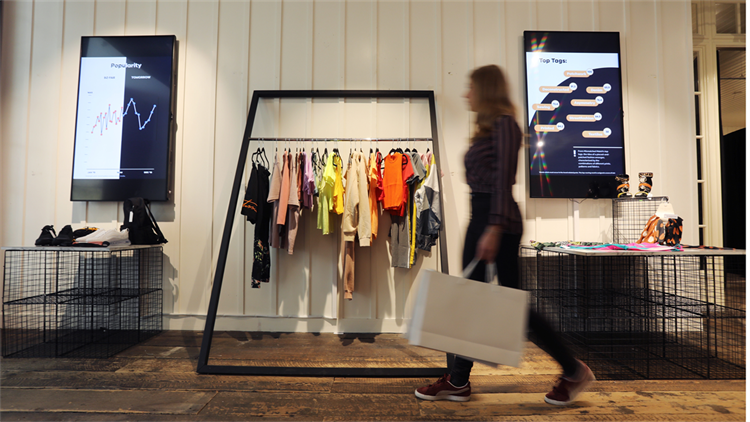Retailers turn to AI to gauge what shoppers want
- In Research Hub
- 11:07, 24 March 2020
- 11683 Views

With brands under increasing pressure to transform customer data into market-leading insight, artificial intelligence applications are likely to shape the future
In an industry where trends are key, any technology which promises to help retailers understand their customers in record time, predict future tendencies and boost business sounds like the stuff of fantasy.
Yet artificial intelligence (AI) is increasingly playing a part in crunching overwhelming amounts of data to create more precise answers to the question of what shoppers really want.
‘A lot has been said about AI aiming to deliver better customer experience within the retail sector,’ confirms Erik Guertler, founder & CEO of Edge AI, a firm using big data and artificial intelligence to unlock proprietary strategies for real estate investment. ‘The next wave of innovation within this field will involve offering a personalised experience,’ he suggests.
‘Retailers are under increasing pressure,’ says Kate Edwards, senior research analyst at JLL. ‘AI is a growing part of their business model to use the data they have to better understand their customers, predict future trends and boost business, from improving the customer-facing experience, to optimising supply chain processes.’
The growing focus on sustainability is equally driving uptake. For example, AI can help identify the opportunities for unsold products, reduce the levels of returned products and decipher optimal fulfilment options, delivering both cost and environmental benefits.
As AI applications grow in popularity, retailer spending on the technology is expected to reach $7.3 bn (€6.75 bn) globally by 2022, compared to $2 bn in 2018, according to Juniper Research.
‘Grocery retailers in particular have been quick off the mark to implement AI technologies in order to combat intense competition,’ Edwards adds. German grocery chain Kaufland uses dynamic pricing with digital shelf labels, with AI analysing large amounts of data such as competitors’ prices in order to instantly update prices and launch store promotions.
Fashion is another area where AI is helping to unlock value. Zara, for example, uses AI to analyse data on their customers’ buying history both online and in-store to buy in the appropriate quantities of products for optimum sales and produce more of its bestsellers.
Similar technology recommends different store layouts for different locations based on localised updates that improve the customer experience. In e-commerce, Asos offers an AI-powered visual search that analyses images to suggest similar items, while a virtual styling app from Yoox allows users to try clothes on a digital avatar and makes recommendations for matching items.
AI also underpins other technologies that retailers are experimenting with – such as augmented reality or virtual reality experiences that can build brand awareness as well as encourage customer engagement.
For retailers with multiple stores across different cities or countries, AI can improve efficiency. ‘AI delivers far more accurate pricing and inventory forecasts than any person could do across a global business, and at the same time, alleviates the need to analyse data on a store-by-store basis, saving on labour and costs,’ says Edwards.
But a critical challenge for retailers is the quality of data required for meaningful analysis by AI. ‘Retailers need to collect clean, substantial data in order for AI to deliver accurate recommendations,’ says Edwards. ‘It isn’t enough to install an AI tool – there needs to be a human understanding of precisely what data is required.’
For most brands, this means acquiring a whole new field of expertise, whether in-house or on a consultant basis – which adds to the overall cost.
Growing concerns about data privacy and how corporations handle customers’ information create another hurdle: retailers must design and implement a user-friendly, transparent policy for collecting the data they need to power AI tools.
‘Transparency in how data will be used – and a clear choice to opt-out – is vital to create and retain loyal customers,’ says Edwards. With technologies such as internet-connected sensors and augmented reality already generating new levels of information about how consumers shop online and offline, AI is likely to become an integral tool for analysing these disparate data streams.
‘A lot of data is available in retail – the next step is turning it into genuine insights,’ says Edwards. ‘Within the next 10 years, AI will become more sophisticated, which will enable every aspect of the shopping experience to be personalised to individual shoppers’ tastes. Equally, it will streamline product design and stock delivery to help drive revenues for retailers.’






